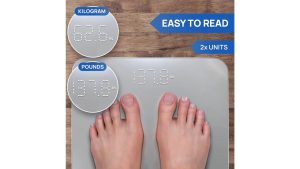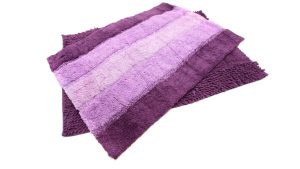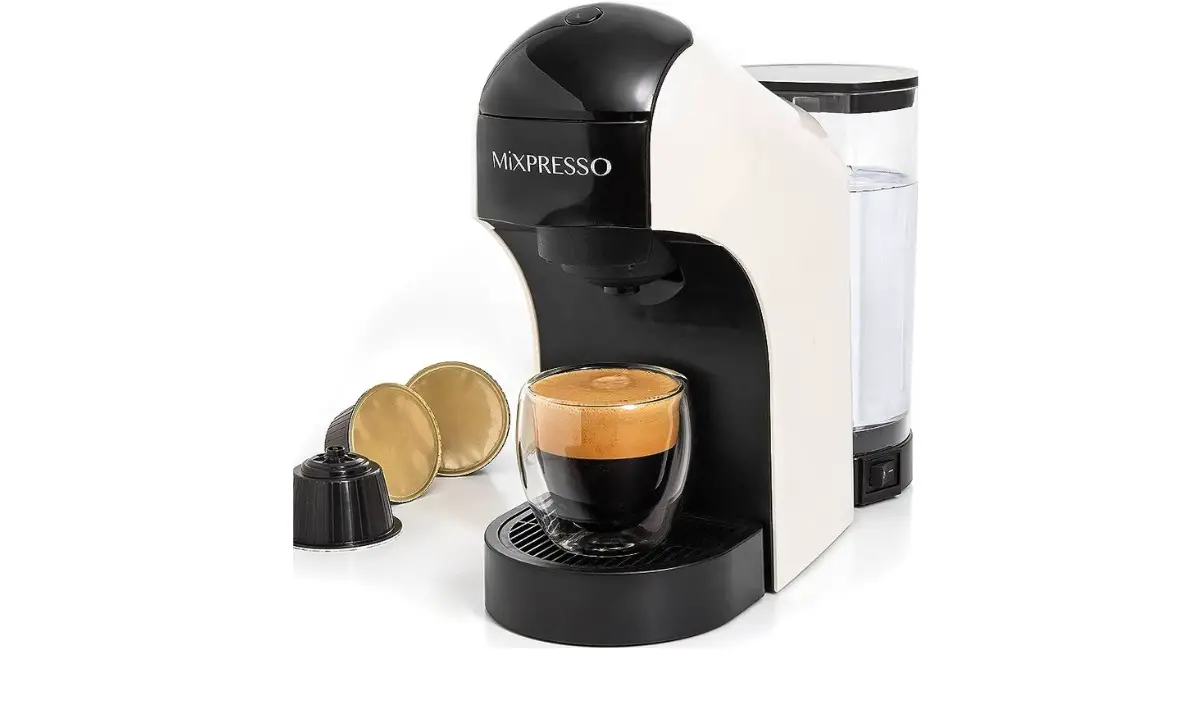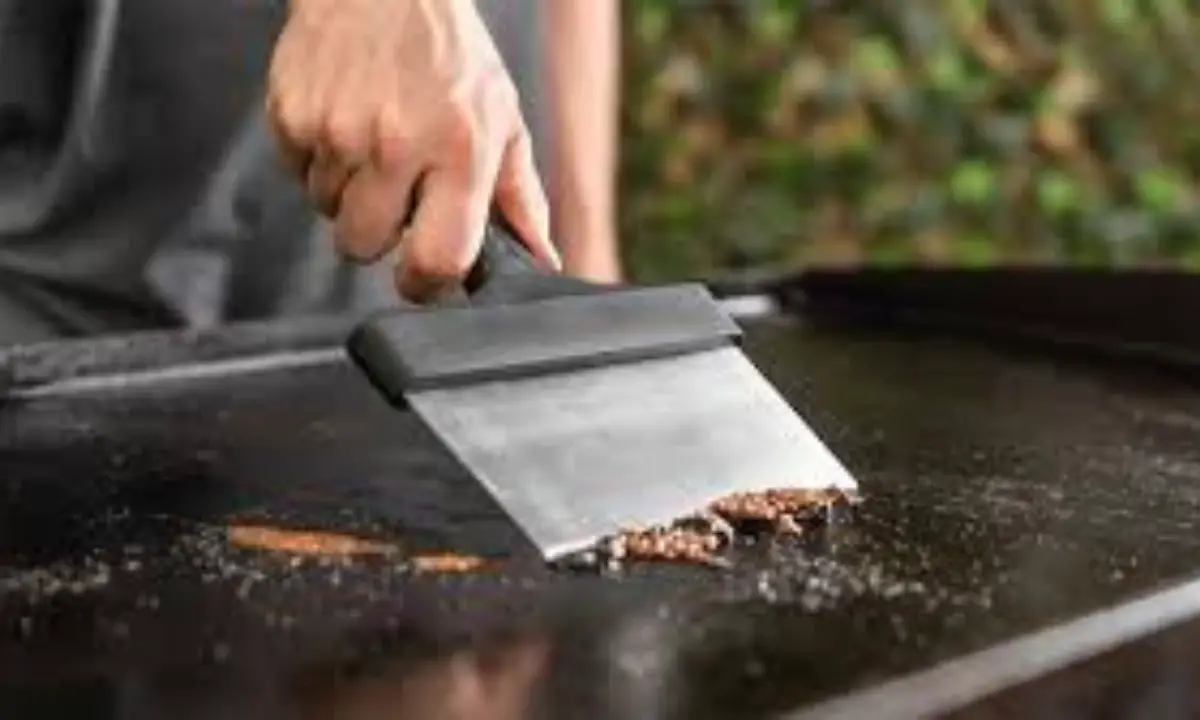How to Clean Griddles

To clean griddles, start by scraping off any food residue with a scraper, then use a damp cloth to wipe it down. After cleaning, apply a thin layer of oil to prevent rust.
Cleaning a griddle regularly will maintain its performance and extend its lifespan. A clean griddle is essential for ensuring food safety and maintaining the quality of your cooking. Regular cleaning also prevents flavor transfer between different batches of food. Additionally, a clean griddle surface improves heat distribution and ensures even cooking.
By following some simple steps, you can easily keep your griddle in top condition and enjoy delicious, well-cooked meals every time.
Understanding Griddle Cleaning
Cleaning your griddle is an essential aspect of maintaining its efficiency and prolonging its lifespan. By understanding the different types of griddles available and the importance of regular cleaning, you can effectively care for your griddle to ensure optimal performance and food safety.
Different Types Of Griddles
Griddles come in various materials, such as stainless steel, chrome, and cast iron. Each type requires specific cleaning methods to prevent damage and ensure longevity. Here’s a brief overview of the cleaning requirements for different griddle materials:
- Stainless Steel Griddles: These are typically non-stick and can be cleaned with a mild detergent and a soft cloth. Avoid using abrasive scrubbers to prevent scratches.
- Chrome Griddles: Chrome griddles require gentle cleaning with a soft cloth and mild detergent. Harsh chemicals or abrasive cleaning tools can damage the surface.
- Cast Iron Griddles: Seasoned cast iron griddles should be cleaned with a stiff brush and hot water. Avoid using soap, as it can strip the seasoning.
Importance Of Regular Cleaning
Regular Cleaning griddles is crucial for several reasons, including:
- Preventing Flavor Transfer: Residual flavors from previous foods can transfer to new dishes if the griddle is not cleaned properly.
- Preventing Bacterial Growth: Food particles left on the griddle can harbor harmful bacteria if not cleaned promptly, potentially leading to foodborne illnesses.
- Enhancing Food Quality: A clean griddle ensures that foods cook evenly and taste their best, without any burnt or off-flavors from residual debris.
Essential Cleaning Tools And Supplies
Cleaning your griddle requires a few essential tools and supplies to ensure the effective removal of grease and food residue. Here are the must-have items to make your griddle sparkle.
Scraper And Spatula
When it comes to keeping your griddle clean, a scraper and spatula are essential. The scraper helps remove built-up grease and food particles, while the spatula is perfect for scraping and lifting off any stuck-on food. Using these tools will make the cleaning process much easier and more efficient.
Cleaning Solution Options
Once you have the right tools, the next step is to choose the appropriate cleaning solution. You have several options to choose from:
- Homemade Cleaners
- Commercial Cleaners
Homemade Cleaners
Homemade cleaners are an eco-friendly and cost-effective choice for cleaning your griddle. You can make a simple and effective cleaning solution using basic household ingredients such as vinegar, baking soda, and lemon juice. These natural cleaners are mild yet effective in breaking down grease and grime.
Commercial Cleaners
If you prefer a ready-made solution, there are a variety of commercial cleaners specifically formulated for griddle cleaning. Many of these cleaners are designed to tackle tough grease and carbon deposits, providing a convenient option for those who prefer a specialized product.
Step-by-step Cleaning Process
When it comes to maintaining a griddle, a step-by-step cleaning process is essential to keep it in top condition. Cleaning your griddle regularly not only prolongs its lifespan but also ensures healthier and better-tasting food. In this blog post, we walk you through the step-by-step cleaning process, providing you with effective techniques to keep your griddle sparkling clean.
Preparing The Griddle
Before starting the cleaning process, it’s important to prepare the griddle to make the cleaning more efficient. Here’s a simple yet effective way to prepare your griddle for cleaning:
- Turn off the heat source and allow the griddle to cool down completely.
- Using a griddle scraper, remove any remaining food debris and residue from the surface.
- Wipe the griddle surface with a damp cloth to remove any loose particles or grease.
Removing Food Residue
Once the griddle is properly prepared, follow these steps to remove any food residue:
- Mix warm water and a few drops of mild dish soap in a bowl.
- Soak a scrubbing pad or sponge in the soapy water and gently scrub the griddle’s surface, focusing on areas with food buildup.
- Rinse the griddle surface thoroughly with clean water and wipe it dry with a clean cloth.
- For stainless steel griddles, use a stainless steel cleaner to restore shine and remove any water spots.
Dealing With Stubborn Stains
Some griddles may have stubborn stains that require extra attention. Follow these steps to deal with stubborn stains:
- Make a paste using baking soda and water, and apply it to the stained areas.
- Allow the paste to sit on the stains for a few minutes, then scrub the area using a non-abrasive scrubbing pad.
- Rinse the griddle thoroughly and dry it with a clean cloth.
Maintaining The Griddle Surface
Proper maintenance is crucial to ensure the longevity and performance of your griddle. By following the right steps, you can keep the griddle surface in top condition, allowing it to deliver consistent cooking results every time.
Seasoning The Griddle
Seasoning your griddle is essential for creating a non-stick surface and preventing rust. To season the griddle, follow these steps:
- Clean: Remove any food residue or debris from the surface using a scraper or spatula.
- Oil Application: Apply a thin layer of high-smoke-point oil (like flaxseed or canola oil) to the entire cooking surface, including the sides.
- Heat: Heat the griddle at a high temperature for at least 20-30 minutes, allowing the oil to polymerize and form a protective layer.
- Cooling: Let the griddle cool down and wipe off any excess oil with a paper towel.
Storing And Covering The Griddle
Proper storage and covering can help protect the griddle from dust, moisture, and other elements. Here are some tips for storing and covering your griddle:
- Clean and Dry: Ensure the griddle is completely clean and dry before storing it to prevent rust and corrosion.
- Cover: Use a specially designed griddle cover or a breathable, moisture-resistant cover to shield the surface from dust and moisture accumulation.
- Avoid Humid Areas: Store the griddle in a dry, well-ventilated area to prevent moisture buildup.
- Elevate: If possible, elevate the griddle off the ground to provide airflow and minimize the risk of condensation.
Frequently Asked Questions Of How To Clean Griddles
How To Clean Griddle Without Chemicals?
To clean a griddle without chemicals, start by scraping off any food residue. Then, use a damp cloth to wipe the surface and finish by seasoning it with oil to protect the metal from rust.
What Are The Best Cleaning Tools For Griddles?
The best cleaning tools for griddles include a scraper or spatula to remove food residue, a cleaning cloth or sponge, and a gentle cleaning solution, such as water and mild dish soap. Avoid using abrasive materials that could damage the surface.
What Is The Proper Way To Season A Griddle?
To season a griddle, apply a thin layer of oil to the surface and spread it evenly using a cloth or paper towel. Heat the griddle until the oil starts to smoke, then turn off the heat and let it cool.
Repeat this process several times to build up a protective layer.
How Often Should I Clean My Griddle?
It’s recommended to clean your griddle after each use to prevent food buildup and maintain its non-stick surface. Regular cleaning also helps to prolong the lifespan of the griddle and ensure a hygienic cooking environment.
How often should I clean my griddle?
For optimal performance and hygiene, it’s recommended to clean your griddle after each use. Additionally, a more thorough cleaning, including the removal of grease and residues, should be performed at least once a week.
Can I use any type of cooking oil for griddle seasoning?
Yes, you can use various cooking oils such as vegetable oil, canola oil, or even flaxseed oil for griddle seasoning. Choose an oil with a high smoke point to achieve the best results.
Is it necessary to clean the griddle while it’s still warm?
A3: Yes, it’s advisable to clean the griddle while it’s still warm but not scalding hot. Cleaning when warm helps to loosen food particles, making it easier to remove debris and stains.
What’s the purpose of seasoning a griddle?
Seasoning a griddle forms a protective layer that prevents rust and enhances its non-stick properties. It also contributes to the development of a rich, flavorful patina over time.
Can I use a wire brush to clean my griddle?
While wire brushes are effective for some griddle surfaces, they may scratch or damage others. Check the manufacturer’s guidelines and, if in doubt, opt for a grill brush with softer bristles or a non-abrasive sponge.
How do I remove burnt-on stains from my griddle?
Stubborn stains can be tackled with solutions like a water and white vinegar mix or a baking soda paste. Apply the solution, let it sit for a few minutes, and then scrub with a brush or sponge.
Can I use soap to clean my griddle?
Yes, you can use a mild soap in warm water for cleaning. To Clean Griddles Ensure thorough rinsing to remove any soap residue. This is particularly useful for eliminating grease and stubborn residues.
Is it necessary to re-season the griddle after each cleaning?
No, re-seasoning after each cleaning may not be necessary. However, applying a thin layer of cooking oil after cleaning helps maintain the griddle’s seasoned finish and protective coating.
Can I clean my griddle in a dishwasher?
It’s not recommended to clean your griddle in a dishwasher, as the harsh detergents and high water pressure can damage the surface and seasoning. Stick to manual cleaning using the recommended tools. To Clean Griddles.
What is the best way to store a griddle between uses?
Store your griddle in a cool, dry place. To prevent moisture and rust, avoid covering it with materials that don’t allow for ventilation. Applying a light coat of cooking oil before storage adds an extra layer of protection.
To Clean Griddles
Conclusion
After following the cleaning tips for your griddle, it will shine like new. Regular maintenance and proper cleaning can prolong the life of your griddle. Using the right tools and techniques will ensure that your griddle performs at its best for a long time. To clean griddles.
Keep your griddle clean and enjoy delicious meals for years to come. To clean griddles.

:max_bytes(150000):strip_icc()/Best-Oven-Cleaners-RS-tout-9a04e0e233ad4d65a12dc37064e35692.jpg)










